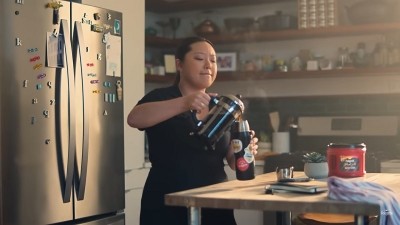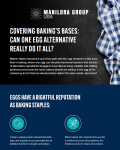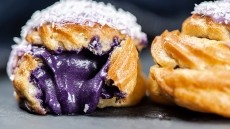JM Smucker lowers guidance as inflation rises and supply chain, labor challenges linger

“The pandemic and related implications, along with cost inflation and volatility in supply chains, continue to impact financial results and cause uncertainty and risk for the fiscal year 2022 outlook,” CFO Tucker Marshall warned yesterday during the company’s third quarter earnings call.
He explained that while the company is “managing the elements we can control, including taking the necessary steps to minimize the impact of cost inflation and any business or labor disruptions,” and to “plan for unforeseen volatility, while ensuring we have contingency plans in place,” the reality is that macroeconomic headwinds, changes in consumer mobility and purchasing behavior and labor and supply chain challenges remain formidable challenges.
With that in mind, he said, the company now expects full-year net sales to decline approximately 1% at the midpoint of its guidance range so that the new expectations is for a decrease in net sales of 0.5% to 1.5% compared to the previous expectation of a drop no more than 1%.
The company also trimmed 10 cents off the top end of its adjusted earnings per share range projection so that now it anticipates a range of $8.35-$8.65 instead of $8.35 to $8.75.
The company’s decision to scale back its outlook also reflects the impact of recent divestitures completed in the third quarter, including Crisco, Natural Balance, private label dry pet food and the natural beverage and grains business, Marshall said, noting that excluding these, underlying organic top line growth is still anticipated to be 4.5% year-over-year for the full year, which is consistent with predictions during previous quarterly calls.
“We now anticipate adjusted gross profit margin of approximately 35%. This reflects our expectations for higher net pricing, cost and productivity savings, and a mix benefit associated with the divestitures being more than offset by higher cost inflation,” Marshall said, adding that cost inflation continues to have a low double-digit impact on total cost of products sold for the fiscal year.
Coffee energizes sales
Despite these challenges, the third quarter also featured several unexpected bright spots, including better than expected coffee sales, which increased 6% in the quarter in the US versus the prior year, resulting in a 1% increase in segment profit.
The increase was driving by net pricing across the portfolio as the company has managed to pass along or make up through cost management activities the full brunt of inflation in the segment.
Despite higher prices at shelf, consumers’ at-home coffee habits formed during the pandemic have continued so that it now represents 70% of all coffee drinking occasions, compared to two-thirds pre-pandemic, CEO Mark Smucker told analysts.
The growth in coffee was felt across all brands and segments, but was led by Dunkin and Café Bustelo, which saw consumer take away up 12% and 15% respectively, Smucker said.
The company’s K-cup business also is strong with growth is two times that of the category, allowing it to capture 1.5 share points in the quarter.
Uncrustables continue to be unbeatable
Smucker’s Uncrustables frozen sandwiches are another breakout winner, bringing in $120m in net sales across both US retail and away from home in the quarter so that total brand sales exceeded $500m for the trailing 12-month period, Smucker said.
This growth is a full year ahead of projections – meaning the brand is well on its way to becoming a $1m brand in annual net sales over the next five years, he crowed.
While not as strong as Smucker’s Uncrustables, sales of Jif peanut butter also helped bolster the consumer foods business, which saw comparable net sales grow 4% in quarter.
Jif sales moderated as it lapped the 14% growth from the prior year when some competitors experienced supply chain disruptions, but Smucker said they remain elevated compared to pre-pandemic levels.
“We are confident in maintaining our strong #1 position with core offerings and fast growing on-trend innovation such as our unique Jif Squeeze and No Sugar offerings,” he added.
Taking into account these successes as well as the ongoing challenges, Marshall said the overall business and brands are strong that he is confident in JM Smucker’s strategy.
“We are taking the right actions to support continued operational excellence, while managing through this dynamic and inflationary environment,” he said, adding, “We remain in a strong financial position to deliver sustainable and consistent long-term growth for our shareholders.”





















